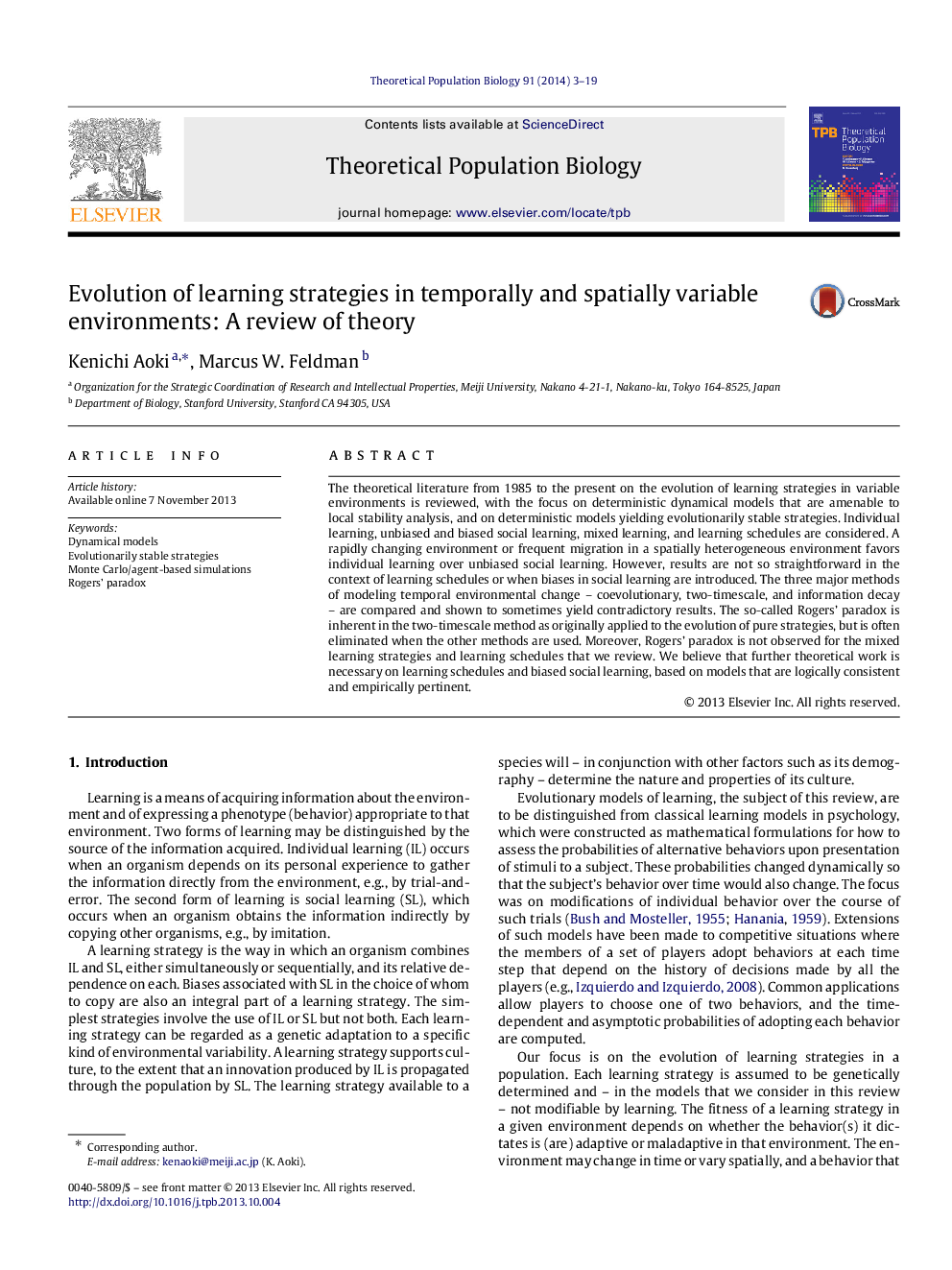| کد مقاله | کد نشریه | سال انتشار | مقاله انگلیسی | نسخه تمام متن |
|---|---|---|---|---|
| 4502366 | 1624161 | 2014 | 17 صفحه PDF | دانلود رایگان |
The theoretical literature from 1985 to the present on the evolution of learning strategies in variable environments is reviewed, with the focus on deterministic dynamical models that are amenable to local stability analysis, and on deterministic models yielding evolutionarily stable strategies. Individual learning, unbiased and biased social learning, mixed learning, and learning schedules are considered. A rapidly changing environment or frequent migration in a spatially heterogeneous environment favors individual learning over unbiased social learning. However, results are not so straightforward in the context of learning schedules or when biases in social learning are introduced. The three major methods of modeling temporal environmental change–coevolutionary, two-timescale, and information decay–are compared and shown to sometimes yield contradictory results. The so-called Rogers’ paradox is inherent in the two-timescale method as originally applied to the evolution of pure strategies, but is often eliminated when the other methods are used. Moreover, Rogers’ paradox is not observed for the mixed learning strategies and learning schedules that we review. We believe that further theoretical work is necessary on learning schedules and biased social learning, based on models that are logically consistent and empirically pertinent.
Journal: Theoretical Population Biology - Volume 91, February 2014, Pages 3–19
